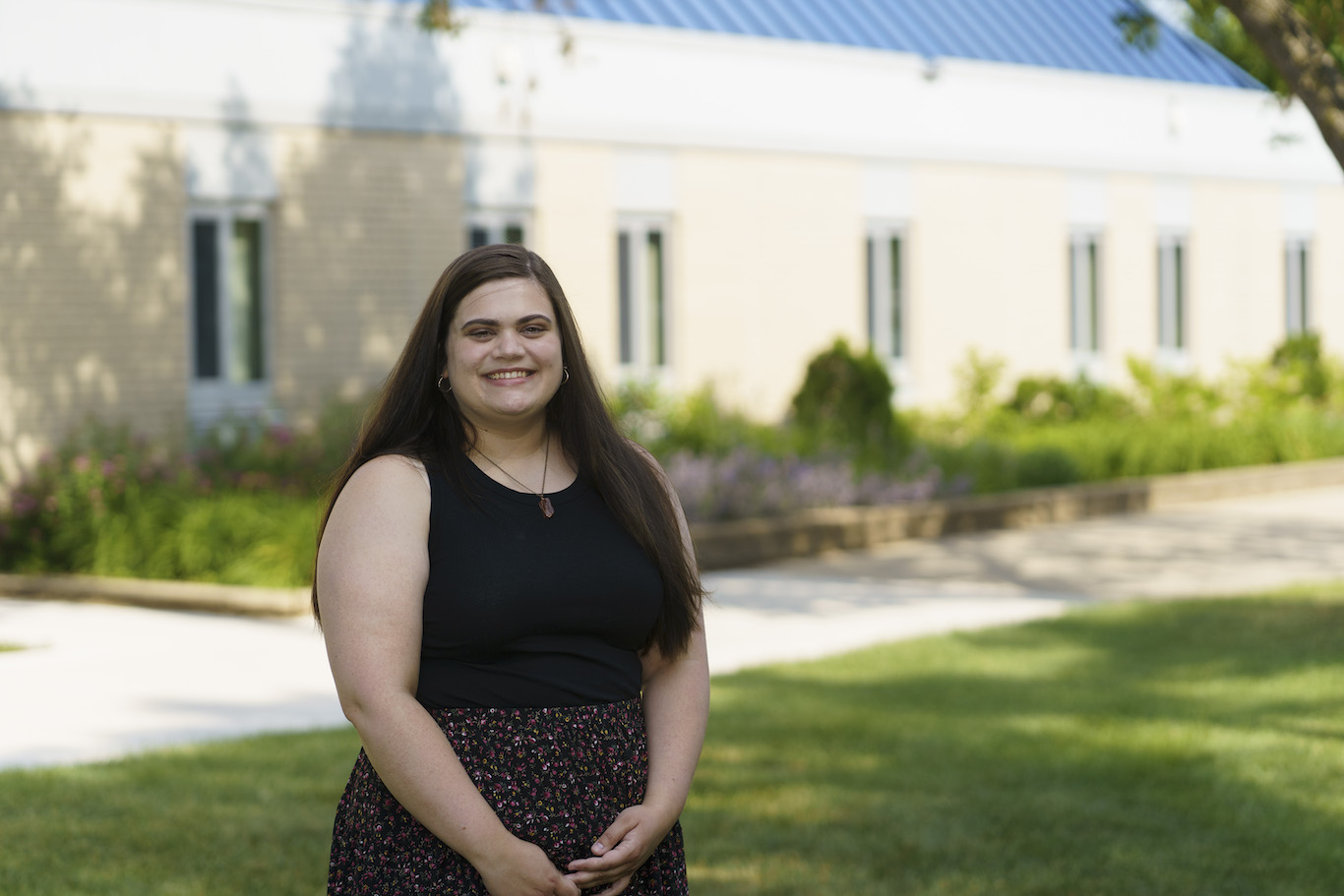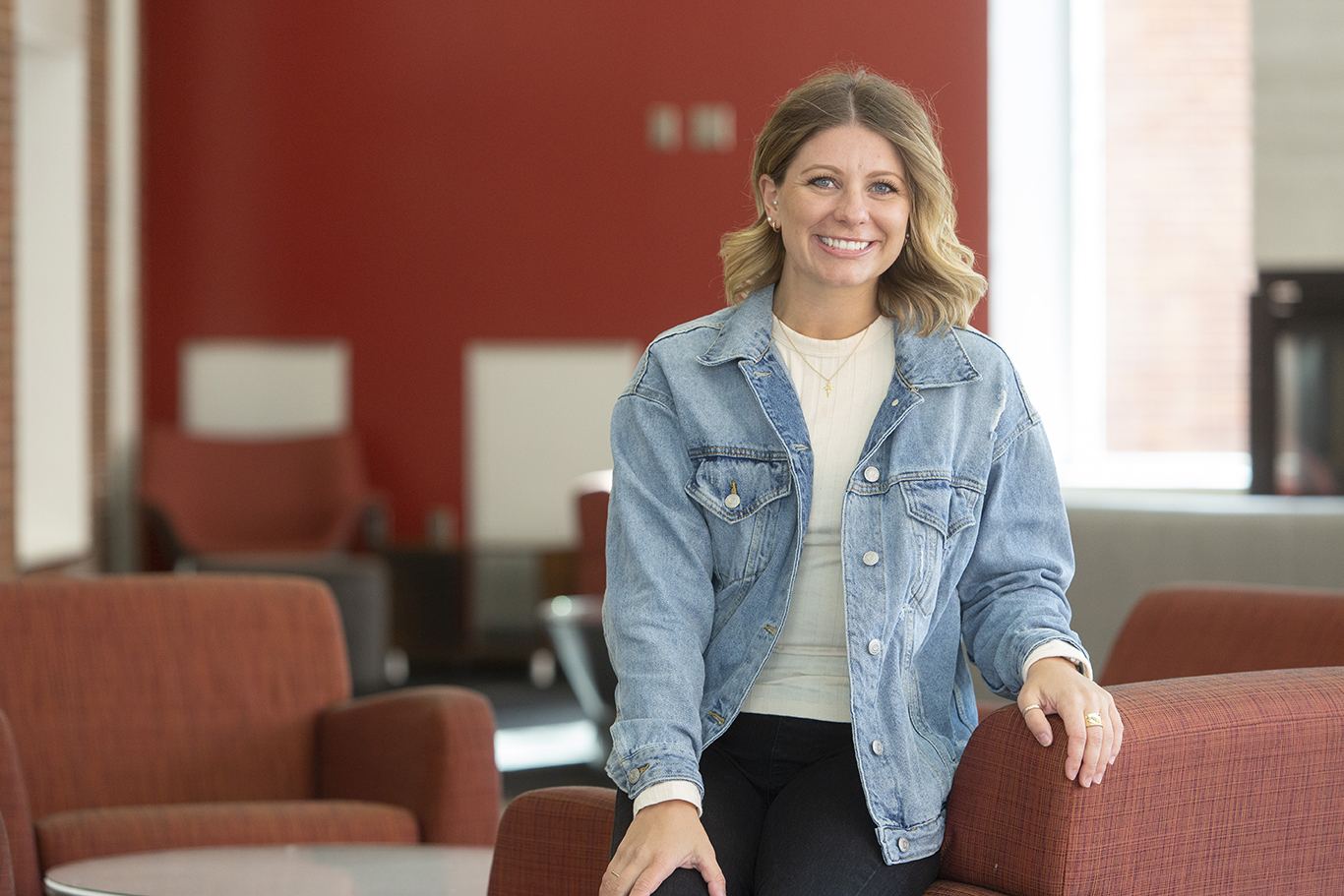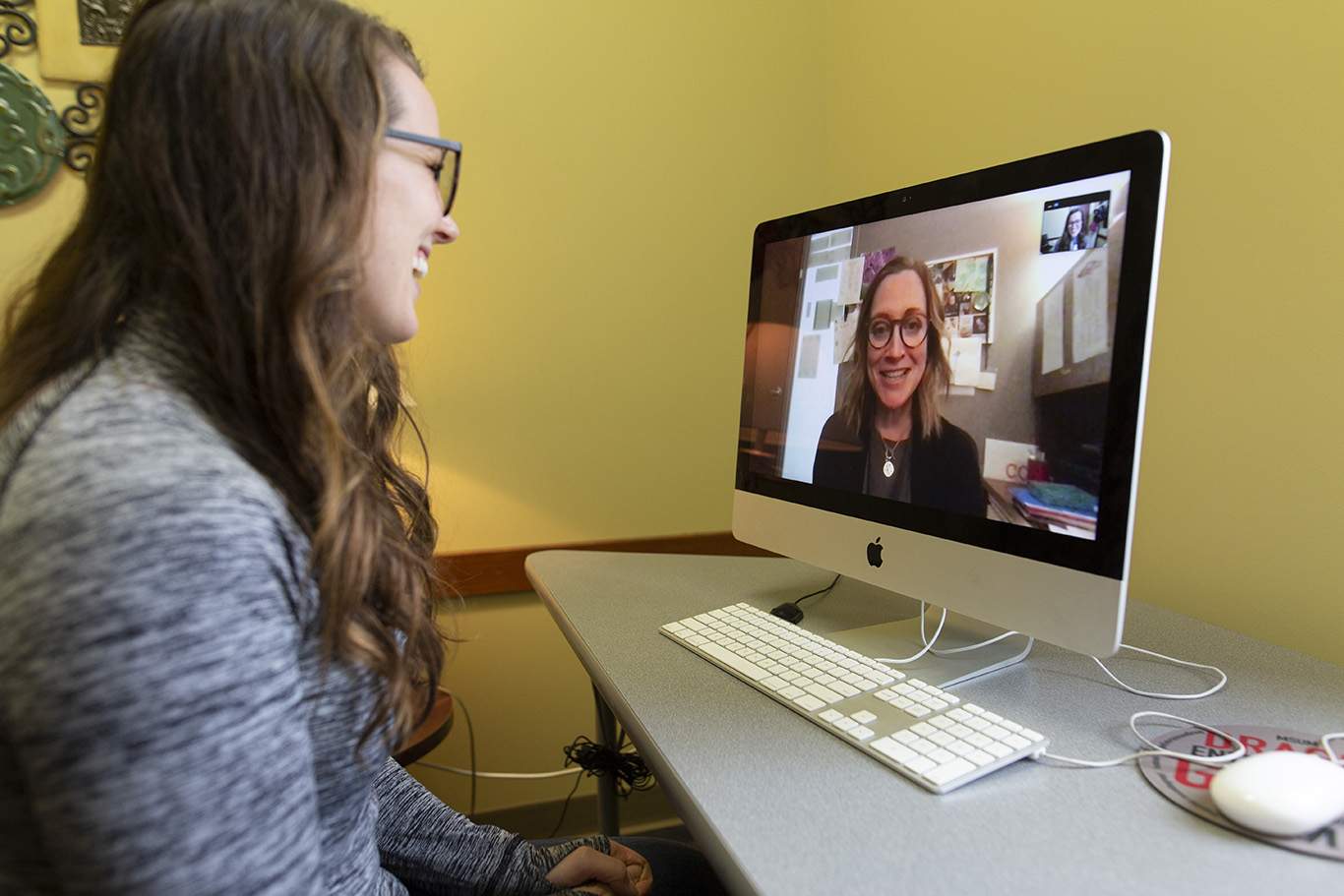Mental health professional scarcity spurs creative solutions
(pictured left to right) Sarah Mittelstadt, director of Southern Plains Education Cooperative, with Laura Odgren, school psychologist
After Laura Odgren got her economics degree from the University of St. Thomas in St. Paul, Minn., life routed her back to her hometown of Fairmont. A town of approximately 10,500 people, Fairmont isn’t teeming with job prospects, but Laura brainstormed how to combine her experience with data science and her passion for kids into a meaningful career.
Laura looked for routes to becoming a school psychologist, aiming to find a program accredited by the National Association of School Psychologists (NASP). With the nearest option being a doctoral program 50 miles away, Laura had to get creative. She reached out to Peg Potter, who was coordinator of Minnesota State University Moorhead’s school psychology program at the time, asking if an online version of the graduate degree in school psychology was available. MSUM got creative, too, and took Laura on as their first fully online participant in the program.
Specialist in School Psychology
Though she was the only person going through the experience virtually, Odgren developed relationships with the other students in her cohort.
“We studied online together, and the faculty made sure I felt connected,” she says. “You’re not going to get a group of professors that is more passionate about and up to date in the field of school psychology, who really care about the lives of their students.”
Piloting an online learning mode with Odgren, MSUM now has six online students and 10 in-person students in each school psychology cohort. (Online slots are limited by NASP accreditation.) The program has also expanded its district partnerships, putting school psychologists in 18 partner schools.
The Southern Plains Education Cooperative, which coordinates services for five rural Minnesota districts, hired Odgren two days a week while she was a student, integrating her into the cooperative’s member school districts while she completed coursework and providing her with the practicum experience necessary for the program. (Odgren managed to navigate both part-time work and school while caring for a two-year-old son and giving birth to her daughter!)
Southern Plains coordinates birth to age 3, mental health, occupational therapy and physical therapy school-based services in the area, in addition to coordinating education for children with physical, visual or hearing impairment. In particular, mental health needs remain paramount as teachers encounter more difficult behaviors at younger ages, not just due to COVID but due to a shortage in of trained professionals who can provide quality interventions.
“We have had positions in school psychology posted for over six years without a single applicant. We provide a decent salary and recruit but there are just not enough people … after all, the nearest Target is 50 miles away,” says Sarah Mittelstadt, director of Southern Plains.
When helping MSUM apply for the Infuse Mental Health Project Grant in October 2022, Mittelstadt reported that “74 out of 87 Minnesota counties have mental health shortages, including all the counties surrounding MSUM”, meanwhile “Minnesota mental health needs and teen and youth suicide rates have been climbing” (MDE Chartbook, 2021). North Dakota is faring much the same with mental health shortages in 48 out of 53 counties (Center for Rural Health, 2020). Alarmingly, an adolescent’s interaction with a school-based mental health provider (SBMH) might be the only way s/he receives trained support. But Minnesota has an average of “one school counselor for every 792 students – the third worst ratio in the country” and one school psychologist per 1,127 students; the recommended ratios are 1:250 and 1:500, respectively (USDOE NCES, 2021).
“The needs are endless,” Mittelstadt says. “We lack qualified clinic-level mental health professionals, so students continue to regress or not make progress, eventually landing them in special education. And research indicates that once we put a special education label on students, expectations decrease and the students’ progress decreases.
What’s more, since some county services require a child to have a diagnosis and an evaluation for special education must be completed by a school psychologist, these shortages can greatly increase the time a family must wait for an appointment or for testing to be done.
To pilot creative solutions, MSUM was recently awarded a federal grant to support school psychology and school counseling students. The grant focuses on mental health by expanding the diversity of schools with which MSUM can partner and significantly increasing financial support for school psychology scholarships.
“I hope that having our school psychology students out there, really focused on mental health, helps broaden awareness of what a school psychologist can do,” says Lisa Stewart, professor of school psychology.
While school psychologists and school counselors are both trained SBMH professionals who can work with mental health counseling and social emotional learning, school psychologists tend to work more with special education, challenging behaviors and students with disabilities. Thus, school counselors focus on the general education population, while school psychologists assess, test, and consult on individualized interventions.
To build resiliency in adolescents, Odgren needs to be skilled in helping them get along with others and manage intense emotions. Though no easy feat, she feels that her specialist degree in school psychology provided her with relevant ways to do this.
“The faculty have a good pulse on what’s happening in education. The information I learned is up to date and I was trained on what schools are implementing on a state and federal level,” she says. “Because I was trained in how multi-tiered systems of support should function, I am really able to help support the schools I service in a unique way as we work to get our MultiTiered Systems of Support process up and running.”
After graduating in Spring 2023, Odgren splits her time between a rural E-12 school and the Southern Plains Arise Academy, which houses an alternative learning center and other specialized programs. She evaluates students for special education, sits on solution-seeking committees, gives teachers ideas of how to respond to and work with challenging behaviors, and is involved in student interventions.
“I like the process of brainstorming with teachers. I love the problem-solving aspect of my job, getting to know students and trying to make sure they are getting the best education possible, that we are servicing their needs. That is meaningful – there’s great purpose behind that,” she says.
Specialist in School Psychology
School psychologists use their knowledge of psychology and education to help students of all ages succeed academically and socially.
Learn more about School Psychology


